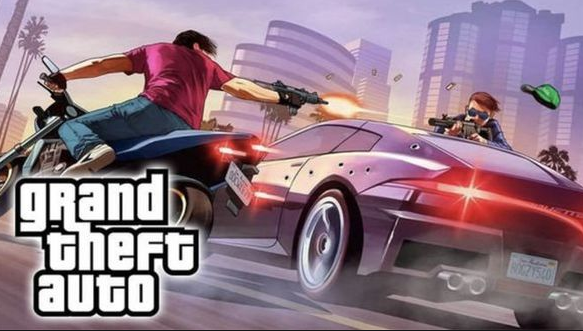The Impact of Media and Video Games
The impact of video games gets a thoughtful and often profound analysis in a pair of recent books by two media scholars at Emory University.

Video games have received considerable partisan political bashing in recent weeks and have raised concern in the Jewish community about being a platform for anti-Semitic activity.
The impact of video games gets a thoughtful and often profound analysis in a pair of recent books by two media scholars at Emory University.
The first, “Media in Mind” by Daniel Reynolds, questions the widely held notion that modern entertainment, whether it be film, video games or diversions on the web, are somehow separate from who we are, in body and mind. The second, Tanine Allison’s “Destructive Sublime,” looks at how the combat of World War II is treated, historically in American film, as well as in present-day video games.
The economic growth of gaming, particularly, has been impressive. The industry in the coming year in the United States is expected to gross over $90 billion, and it is estimated there are 2.5 billion people around the world who play games on their tablets, cell phones and computers, according to WePC.com.

For Matthew Bernstein, a nationally recognized film and media studies professor and chair of that department at Emory, the two new books reflect part of the challenge that the study of new media pose in trying to keep up with a rapidly changing world.
“Media studies is always devoted to keeping pace with new technologies and understanding the ways people use them and interpret them — and [professors] Allison and Reynolds exemplify two rich examples of the approaches scholars can take.”
While both books are primarily about media, they also explore the implication of the media we experience. Whether we are playing a video game that carries us into the wee hours of the morning or sitting in the plush lounge chair of a darkened theater for an hour or two, both scholars maintain that we are experiencing more than just a momentary diversion from real life.
Both argue in favor of the immense impact that gaming and other forms of modern entertainment have on us. Both their books, which were based in part on their Ph.D. dissertations, explore not only the cultural influence of newer forms of media but how they work, affect us emotionally, and what we do with that experience.
Reynolds and Allison see themselves as part of the first generation of educators who have grown up with media that are more interactive, more open-ended in their narrative, more seductive in their claim on us.
“I am posing the question of: How do you perceive this?” Reynolds said. “What can this show you about the world or what kind of new experiences can this medium give you? I would almost call it a perceptual impact through something that new media have.”
At the heart of his argument is the idea that we somehow internalize our experiences of all modern media. That, just like the mind and body make up who we are as an individual, so our experiences of media in the external world of our experience become a part of who we are as a person.
“There’s been an increase of interest recently in the philosophy of mind and in cognitive science trying to think about the ways that the mind is part of the world. What they are saying and what I am saying is that we need to think of the mind not as being something that’s sort of discrete and contained and separate, but rather it’s a thing that sort of emerges from activity in the world. And I’m trying to take that idea and extend it to media.”
Both professors reject the argument that violence in the modern games we play or the way we play them inspires us to be more violent or more accepting of violence in our everyday lives. Violence in media is a complex and challenging issue, they said.
There is also concern that online game-playing can lead some to become targets for white nationalists and other radical, anti-Semitic political movements.
In the past two years, the Anti-Defamation League has stepped up its work with the gaming community through its Center for Technology and Society. It has partnered with the International Game Developers Association and New York University’s Game Center to address issues related to hate and bias in the development of new game products.
Reynolds and Allison are associate professors in the Department of Film and Media Studies at Emory. They teamed up earlier this year to teach a course in new media focused on the way students can analyze and confront the role that video games play in their lives.
“They have become an extension of us and that’s especially so for video games,” Allison said.
Media In Mind, Daniel Reynolds, Oxford University Press 2019
Destructive Sublime: World War II in American Film and Media, Tanine Allison, Rutgers University Press 2018



comments